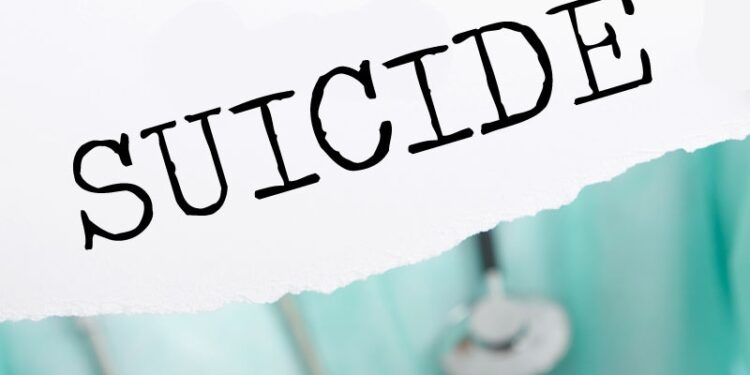Olivier Marleix’s death shocked the French political community. The Member of Parliament (MP) for Eure-et-Loir and former president of the Les Républicains group in the National Assembly died by suicide on 7 July, at the age of 54. Widely respected by colleagues and opponents alike, the former mayor of Anet was honoured by leaders across the political spectrum, including Marine Le Pen, Jean-Luc Mélenchon, François-Xavier Bellamy, and President Emmanuel Macron.
Speculation and Conspiracy
Amid the widespread expression of sympathy, social media was flooded with speculative and often disrespectful comments. Some users questioned how Marleix could have taken his own life when he did not appear to be visibly distressed.
“Do you see any sign of distress in this speech by Olivier Marleix, delivered 5 days before his death?” One social media user asked, sharing a video of the MP addressing the National Assembly. Another wrote, “On Sunday, Olivier Marleix was smiling while inaugurating projects in his constituency; the next day he takes his own life — something doesn’t add up.”
A reasonable conclusion is that human behaviour is often complex, and a person may appear calm or happy in public while experiencing severe distress in private. However, for some social media users, this explanation was not convincing. Conspiracy theories quickly spread, claiming that authorities killed Olivier Marleix and other public figures because they allegedly “knew too much” about sensitive matters, such as the sale of Alstom or the alleged mass euthanasia of older adults during the COVID-19 lockdown. Supporters of these theories rallied around the hashtag #JeNeSuisPasSuicidaire (“I am not suicidal”), implying that if they were found dead by suicide, it should be treated as a possible homicide.
Misunderstanding Suicide
Reactions to the suicide of Olivier Marleix highlight widespread public misunderstanding of suicide, said David Masson, MD, head of the Department of Psychosocial Rehabilitation at the Centre Psychothérapique de Nancy in Laxou, France, who is active on social media, and criticised the #JeNeSuisPasSuicidaire (“I am not suicidal”) movement as “pathetic and unworthy.”
Focusing on raising awareness of mental health, Masson regularly uses his X account to challenge the common misconceptions about suicide. He began by sharing key statistics: Around 9200 individuals die by suicide each year in France, and at least 200,000 attempt suicide — a figure likely underestimated. Far from being rare, suicide deaths have increased slightly in recent years, with France having one of the highest suicide rates in Europe.
Masson also countered the popular image of suicide notes, explaining that “The majority of suicides are not accompanied by a letter or explanation.” Addressing Marleix’s case specifically, he noted, “What we see is not always what we feel. A person can wear a bright smile, even during a suicidal crisis.”
He added that suicide may result from depression but can also occur in the context of other psychiatric conditions such as bipolar disorder, addiction, or schizophrenia. In some cases, there may be no identifiable mental illness.
Another misconception, he said, is that those who die by suicide tend not to talk about it. In reality, people experiencing suicidal thoughts often do speak about them, “frequently as a cry for help.” Masson emphasised that asking someone directly about suicidal thoughts does not encourage them to act but instead “opens up space for discussion and helps assess their level of suffering.” Responding directly to the #JeNeSuisPasSuicidaire movement, he added, “No one is immune to developing suicidal thoughts during their life.”
Marleix’s death was followed by the news of another tragedy: the suicide of Maxime Tessier, lawyer for Joël Le Scouarnec — a physician convicted of sexual assaults who died at the age of 34.
France has indicated a rise in suicides and suicide attempts among tax authority employees in 2025, with 13 deaths and 8 attempts to date, including 2 suicides related to the workplace.
These recent events have strengthened the calls from mental health professionals to end the silence surrounding suicide. “Suicide is the tragedy of silence — the silence of those who suffer but feel too ashamed or afraid to speak, and the silence of loved ones who do not know how to ask,” said Nathalie Pauwels, director of the Papageno programme, in an interview with La Voix du Nord, a regional newspaper based in Lille, northern France.
Focus on Prevention
The Papageno programme, a national suicide prevention initiative in France, was created by doctors and journalists and named after a character in Mozart’s opera The Magic Flute. In the opera, Papageno is saved from suicide by his friends, symbolising the power of social support. The programme aims to prevent suicide contagion, also known as the Werther effect, a well-documented phenomenon in which media coverage of suicide can lead to an increase in suicide rates, particularly if the reporting is sensationalised or lacks appropriate context.
To counter this, the programme launched a nationwide campaign titled Talking About Suicide Can Save Lives, aimed at promoting open dialogue about mental health and improving how suicide is discussed in the media. The campaign aligns with global public health efforts to reduce suicide stigma and encourage early intervention.
“Our goal is to help create a society where those in distress can find support, and those offering help know how to respond,” said the program’s organisers.
This story was translated from JIM.
Source link : https://www.medscape.com/viewarticle/smile-before-fall-suicide-risk-you-missed-2025a1000jpk?src=rss
Author :
Publish date : 2025-07-25 11:31:00
Copyright for syndicated content belongs to the linked Source.














